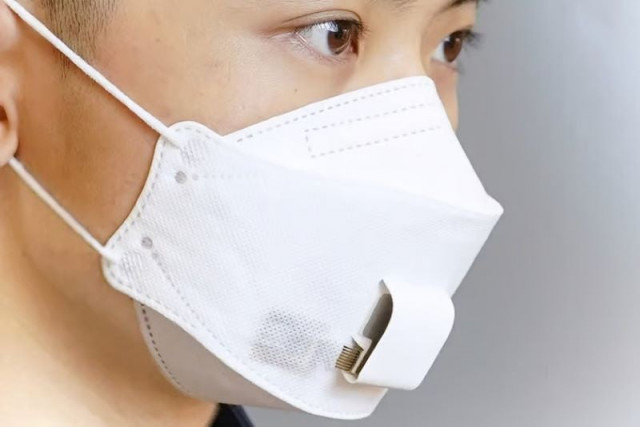Smart mask uses sensors to assess wearers' breath for health insights
The EBCare (Exhaled Breath Condensate) mask, created by Prof. Wei Gao and his team at Caltech

Scientists at the California Institute of Technology have developed an innovative mask capable of analysing a wearer’s breath to assess their health. The EBCare (Exhaled Breath Condensate) mask, created by Prof. Wei Gao and his team, is designed to monitor respiratory conditions such as chronic obstructive pulmonary disease (COPD), asthma, and post-COVID-19 complications. However, the mask's potential applications extend beyond these ailments.
Unlike other health-monitoring "smart masks," the EBCare mask does not measure breath rate, temperature, or humidity. Instead, it focuses on detecting specific chemicals in the exhaled breath, offering insights into the levels of various biomarkers.
The process begins as the user exhales, with their moist breath being cooled by an integrated system that combines evaporative and radiative cooling. This cooling process causes the water droplets in the breath to condense into liquid form. The liquid is then channelled into a reservoir via microfluidic channels, where sensors analyse the liquid for specific chemicals. The data collected by these sensors is wirelessly transmitted to an app on the user's smartphone, displaying real-time results.
In clinical tests conducted on patients with asthma and COPD, the EBCare mask successfully detected exhaled nitrite levels, a marker associated with airway inflammation. It also accurately measured ammonium levels, which correlate with urea levels in the blood—a high indicator of potential kidney issues. Remarkably, the mask even demonstrated the ability to measure blood alcohol levels through breath analysis, presenting a cost-effective alternative to traditional breathalyzers.
Prof. Gao noted the device's affordability, stating that it could be produced for as little as one dollar in materials if manufactured at scale. "These first studies are a proof of concept," he explained. "We want to expand this technology to incorporate different markers related to various health conditions. This is a foundation for creating a mask that functions as a versatile general health-monitoring platform."
The findings of this research were recently published in the journal “Science”.



















COMMENTS
Comments are moderated and generally will be posted if they are on-topic and not abusive.
For more information, please see our Comments FAQ